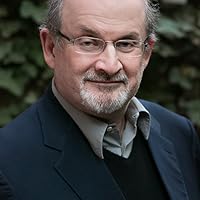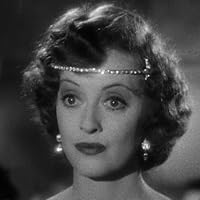Film Quotes
Quotes tagged as "film"
Showing 601-630 of 645

“Everybody has something that chews them up and, for me, that thing was always loneliness. The cinema has the power to make you not feel lonely, even when you are.”
―
―

“Well, as I was saying, it costs a lot to be authentic, madam. And one can't be stingy with these things, because you are more authentic the more you resemble what you've dreamed you are. - Agrado from "Todo Sobre Mi Madre”
―
―

“The mole is an animal that digs passages searching for the sun. Sometimes he reaches the surface. When he looks at the sun he goes blind.”
―
―

“In drama, the characters should determine the story. In melodrama, the story determines the characters.”
― Making Movies
― Making Movies

“I can no longer think what I want to think. My thoughts have been replaced by moving images.”
― Scènes de la vie future
― Scènes de la vie future

“A film which followed the code of the Hays Office to the strictest letter might succeed in being a great work of art, but not in a world in which a Hays Office exists.”
― Minima Moralia: Reflections on a Damaged Life
― Minima Moralia: Reflections on a Damaged Life

“To Bette Davis, Gena Rowlands, Romy Schneider... To all actresses who have played actresses, to all women who act, to all men who act and become women, to all the people who want to be mothers. To my mother.
- Dedication, Todo Sobre Mi Madre”
―
- Dedication, Todo Sobre Mi Madre”
―

“Most of us are searching-consciously or unconsciously- for a degree of internal balance and harmony between ourselves and the outside world, and if we happen to become aware-like Stravinsky- of a volcano within us, we will compensate by urging restraint. By that same token, someone who bore a glacier within them might urge passionate abandon. The danger is, as Bergman points out, that a glacial personality in need of passionate abandon may read Stravinsky and apply restraint instead.”
― In the Blink of an Eye: A Perspective on Film Editing
― In the Blink of an Eye: A Perspective on Film Editing

“Just watch any husband arguing with his wife about something insignificant; listen to what they say and watch how their residual emotions manifest when the fight is over. It’s so formulaic and unsurprising that you wouldn’t dare re-create it in a movie. All the critics would mock it. They’d all say the screenwriter was a hack who didn’t even try. This is why movies have less value than we like to pretend — movies can’t show reality, because honest depictions of reality offend intelligent people.”
― The Visible Man
― The Visible Man

“I'm lucky enough to be able to make films and so I don't need a psychiatrist. I can sort out my fears and all those things with my work. That's an enormous privilege. That's the privilege of all artists, to be able to sort out their unhappiness and their neuroses in order to create something.”
―
―

“You see, the interesting thing about books, as opposed, say, to films, is that it's always just one person encountering the book, it's not an audience, it's one to one.”
―
―

“OK, publishing a book and releasing a movie is all very well, but Tottenham beating Man. U. 3-2... priceless.”
―
―
“To make a real independent film where the filmmaker is in charge creatively, one must sacrifice personal, financial, and physical well-being.”
― The Declaration of Independent Filmmaking: An Insider's Guide to Making Movies Outside of Hollywood
― The Declaration of Independent Filmmaking: An Insider's Guide to Making Movies Outside of Hollywood

“And we hate this possibility in movies; we hate this "both" shit. "Both" comes off as sloppy characterization, muddy filmmaking, lack of focus. ... But I submit that the real reason we criticized and disliked Lynch's Laura's muddy bothness is that it required of us an empathetic confrontation with the exact same muddy bothness in ourselves and our intimates that makes the real world of moral selves so tense and uncomfortable, a bothness we go to the movies to get a couple hours' fucking relief from.”
― A Supposedly Fun Thing I'll Never Do Again: Essays and Arguments
― A Supposedly Fun Thing I'll Never Do Again: Essays and Arguments

“One of the common themes you will read in interview after interview is the call to keep fighting for your vision. This is a message to women directors, producers, writers—anyone who wants to work in the business. Your voice counts. Your vision matters.”
― In Her Voice: Women Directors Talk Directing
― In Her Voice: Women Directors Talk Directing

“Yet in recent years I have witnessed a new phenomenon among filmgoers, especially those considered intelligent and perceptive. I have a name for this phenomenon: the Instant White-out. People are closeted in cozy darkness; they turn off their mobile phones and willingly give themselves, for ninety minutes or two hours, to a new film that got a fourstar rating in the newspaper. They follow the pictures and the plot, understand what is spoken either in the original tongue or via dubbing or subtitles, enjoy lush locations and clever scenes, and even if they find the story superficial or preposterous, it is not enough to pry them from their seats and make them leave the theatre in the middle of the show.
But something strange happens. After a short while, a week or two, sometimes even less, the film is whitened out, erased, as if it never happened. They can’t remember its name, or who the actors were, or the plot. The movie fades into the darkness of the movie house, and what remains is at most a ticket stub left accidentally in one’s pocket.”
― The Retrospective
But something strange happens. After a short while, a week or two, sometimes even less, the film is whitened out, erased, as if it never happened. They can’t remember its name, or who the actors were, or the plot. The movie fades into the darkness of the movie house, and what remains is at most a ticket stub left accidentally in one’s pocket.”
― The Retrospective

“Good film, television, or music keeps you awake, anxious for the next movement or act, and wanting more when it is finished.”
―
―
“Out of the ugliness of the ironworks lepers will eat, children will be born, their parents will grow old.”
― Hayao Miyazaki: Master of Japanese Animation
― Hayao Miyazaki: Master of Japanese Animation

“Painting, by its nature, cannot provide an object of simultaneous collective reception... as film is able to do today... And while efforts have been made to present paintings to the masses in galleries and salons, this mode of reception gives the masses no means of organizing and regulating their response. Thus, the same public which reacts progressively to a slapstick comedy inevitably displays a backward attitude toward Surrealism.”
― The Work of Art in the Age of Its Technological Reproducibility, and Other Writings on Media
― The Work of Art in the Age of Its Technological Reproducibility, and Other Writings on Media
“Today’s youngsters will unfortunately never know the thrills we experienced dubbing movies in the era of Rashomon.”
― Waiting on the Weather: Making Movies with Akira Kurosawa
― Waiting on the Weather: Making Movies with Akira Kurosawa
“For the casual viewer, Kurosawa’s films can be an exercise in endurance.”
― The Films of Kiyoshi Kurosawa: Master of Fear
― The Films of Kiyoshi Kurosawa: Master of Fear
“Kon’s films present a fractured, multifaceted world in which everyone has their own different reality.”
― Satoshi Kon: The Illusionist
― Satoshi Kon: The Illusionist

“While the characters drive the epic story of Robotech, it’s the robotic mecha that capture the imagination.”
― The Art of Robotech: The Shadow Chronicles
― The Art of Robotech: The Shadow Chronicles

“Stahl trailed him upstairs, across a mezzanine, and out into the darkness of the sloping balcony. Tom gave the aisle his torch so his guest could see. On the screen below a woman's head was wavering, two or three times larger than life. A metallic voice clanged out, echoing sepulchrally all over the house, like a modern Delphic Oracle. 'Go back, go back!' she said. 'This is no place for you!'
Her big luminous eyes seemed to be looking right at Lew Stahl as she spoke. Her finger came out and pointed, and it seemed to aim straight at him and him alone. It was weird; he almost stopped in his tracks, then went on again. He hadn't eaten all day; he figured he must be woozy, to think things like that. ("Dusk To Dawn")”
―
Her big luminous eyes seemed to be looking right at Lew Stahl as she spoke. Her finger came out and pointed, and it seemed to aim straight at him and him alone. It was weird; he almost stopped in his tracks, then went on again. He hadn't eaten all day; he figured he must be woozy, to think things like that. ("Dusk To Dawn")”
―

“The varying physical characteristics of the actors may also necessitate changes. Sean Connery is six feet four. Dustin Hoffman isn't.”
― Making Movies
― Making Movies

“In America, film is the highest form of art that the public aspires to. People will come to me and say ‘Oh, your book was so good, they ought to make a movie out of it!’ To which I reply ‘Well, why? It’s already a book.”
―
―

“Her first really great role, the one that cemented the “Jean Arthur character,” was as the wisecracking big-city reporter who eventually melts for country rube Gary Cooper in Frank Capra’s Mr. Deeds Goes to Town (1936). It was the first of three terrific films for Capra: Jean played the down-to-earth daughter of an annoyingly wacky family in Capra’s rendition of Kaufman and Hart’s You Can’t Take It With You (1938), and she was another hard-boiled city gal won over by a starry-eyed yokel in Mr. Smith Goes to Washington (1939). “Jean Arthur is my favorite actress,” said Capra, who had successfully worked with Stanwyck, Colbert and Hepburn. “. . . push that neurotic girl . . . in front of the camera . . . and that whining mop would magically blossom into a warm, lovely, poised and confident actress.” Capra obviously recognized that Jean was often frustrated in her career choice.”
― Bride of Golden Images
― Bride of Golden Images

“Gökyüzüne bakar Sinemacı
Çocuklar! Hayaller geçiyor mu?
Bütün yazılanlar, çekilecekler filmlere fragman…”
― Yağmur Kesiği
Çocuklar! Hayaller geçiyor mu?
Bütün yazılanlar, çekilecekler filmlere fragman…”
― Yağmur Kesiği
All Quotes
|
My Quotes
|
Add A Quote
Browse By Tag
- Love Quotes 97k
- Life Quotes 75.5k
- Inspirational Quotes 72.5k
- Humor Quotes 43.5k
- Philosophy Quotes 29.5k
- Inspirational Quotes Quotes 27k
- God Quotes 26k
- Truth Quotes 23.5k
- Wisdom Quotes 23.5k
- Romance Quotes 23k
- Poetry Quotes 22k
- Death Quotes 20k
- Happiness Quotes 18.5k
- Life Lessons Quotes 18.5k
- Hope Quotes 18k
- Faith Quotes 18k
- Quotes Quotes 16.5k
- Inspiration Quotes 16.5k
- Spirituality Quotes 15k
- Religion Quotes 15k
- Motivational Quotes 15k
- Writing Quotes 14.5k
- Relationships Quotes 14.5k
- Life Quotes Quotes 14k
- Love Quotes Quotes 13.5k
- Success Quotes 13.5k
- Time Quotes 12.5k
- Motivation Quotes 12k
- Science Quotes 11.5k
- Knowledge Quotes 11k


